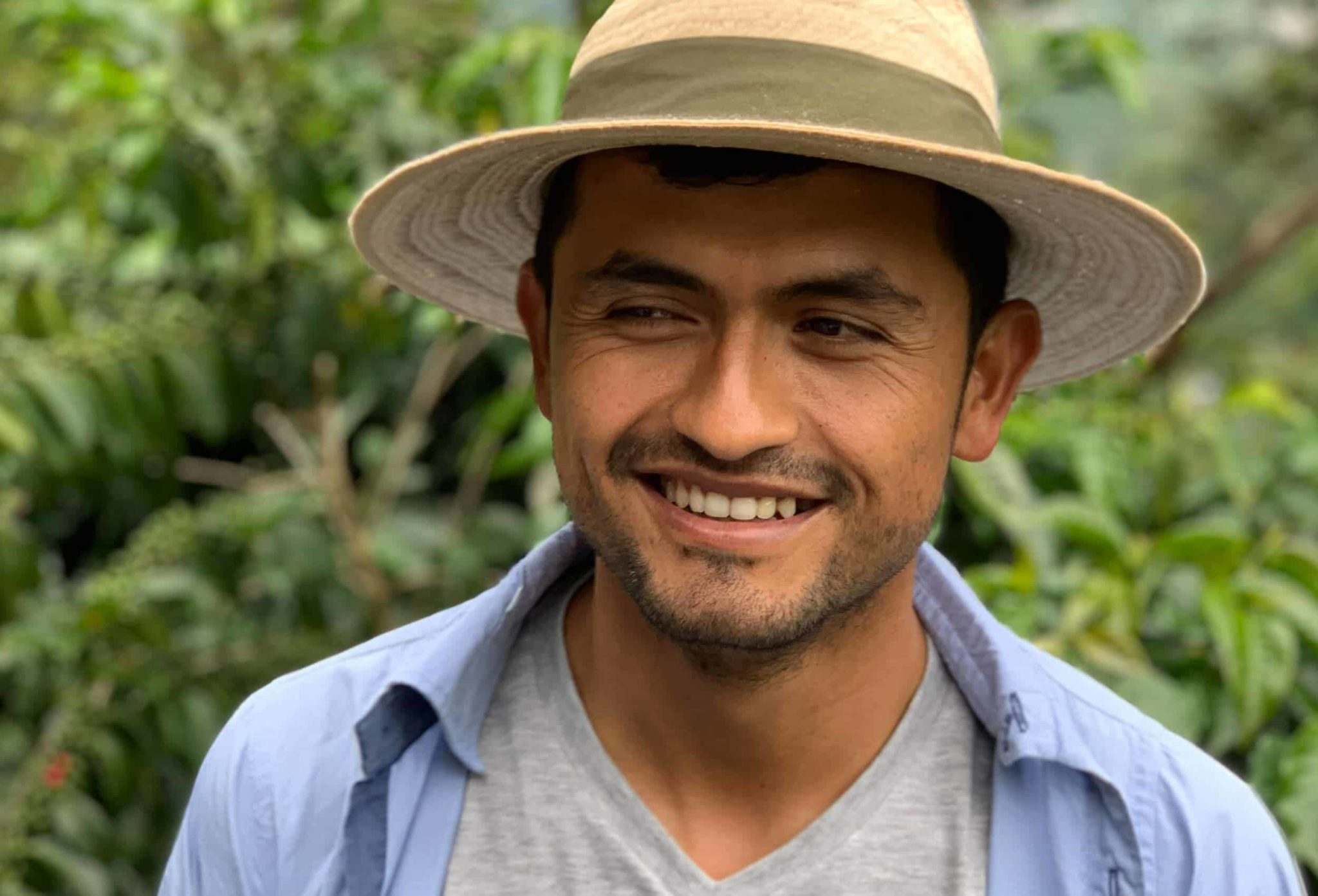OSCAR HERNANDEZ – A RISK-TAKER
FARMERS FROM SOUTHERN COLOMBIA
As a young boy, Oscar roamed the lush green coffee fields of Finca Los Nogales in Pitalito. The rows and rows of coffee, banana and orange trees on the steep south-facing slope served as an ideal hiding place when playing with his eight siblings. As the third-youngest child of the Hernandez family, Oscar grew up in humble circumstances, in a very close-knit family. “I had a happy childhood up here on the coffee farm,” Oscar reminisces. “Only the daily walk to school could perhaps have been a little shorter,” he adds. They had to walk for 90 minutes, including a 600 meter decline, to get down to the valley in the morning and back up the mountain in the afternoon.
The curious Oscar spent every free minute outdoors and wanted to learn all about the sweet coffee cherries from his father. His father, Don Ricaurte, was a trailblazer among local coffee farmers in the Huila district and set new standards in coffee quality in the early 2000s. In 2005, he won the coveted Cup of Excellence, an internationally recognised award for specialty coffees.
FACING A SETBACK
The award was both a curse and a blessing for Finca Los Nogales and the Hernandez family. The success brought new customers to the farm. A Japanese coffee roastery started buying large quantities of the award-winning coffee and became the family-run company’s number one customer. The success of the coffee farm also attracted the attention of the social revolutionary guerrilla organisation Fuerzas Armadas Revolucionarias de Colombia, or FARC for short. The self-proclaimed “People’s Army” was amid a civil war against the Colombian state. Their fighters would hide in the neighbouring jungle and finance their armed struggle by kidnapping and extorting civilians and by smuggling drugs such as cannabis and cocaine.
In 2013, Oscar’s father became the target of such a kidnapping. Knowing the threat of extortion that would befall his family, he resisted and died fighting the guerrillas.
RETURN TO THE COFFEE FARM
Oscar was 25 years old at the time and had been serving the Colombian army for six years. The death of his father thwarted his plans for the future, and he returned in January 2014 from the navy base in Cartagena, to take over the management of Finca Los Nogales. The third-youngest child became the new head of the family overnight.
Oscar, the daring coffee maker, was back in the south and benefited from his curiosity and fascination for coffee. He was very familiar with the local flora and fauna and decided to pursue his father’s philosophy out of respect and because he shared his convictions. He relies on quality without compromise.
A FARMER THAT’S NOT AFRAID OF RISK
In addition to valuable coffee knowledge and plenty of initiative, willpower and perseverance were now required. The family became even closer and Oscar brought many new ideas home.
In the navy he had learned to take responsibility, work in a structured manner and assess risks. He is technologically savvy, works very meticulously and likes ambitious goals that others consider unattainable. He quickly learned to deal with major challenges and the risk of failure. Experiments in his makeshift quality laboratory help him to explore new ideas and solutions.
BIG DREAMS
His ultimate goal is to make his late father proud. He can only achieve this if he makes his customers proud by producing the highest quality coffee. The Finca Los Nogales became his life’s project. Very Oscar-like, he is not satisfied with a high score on the score sheets. No. He would like to make Finca Los Nogales the leading coffee farm in Colombia and would later like to be elected to the Council of the Federación Nacional de Cafeteros de Colombia (FNC).
Until then, he has to overcome several other hurdles. Climate change is making life difficult for coffee farmers in Pitalito. Oscar does not get discouraged by this and accepts the challenge. Newly married but still childless, he already speaks of the next generation, which will still produce top coffees at Finca Los Nogales in the next 30 to 50 years. This requires a rapid change to more environmentally sustainable agricultural methods, which is exactly where he is currently focusing his efforts on. He would like to switch from conventional to organic farming within the next five years.
“All the other farmers in the region laugh and consider it impossible to produce 100% organically in this climate and with these soils,” he explains to me on the phone. “But I want to prove them otherwise.”







